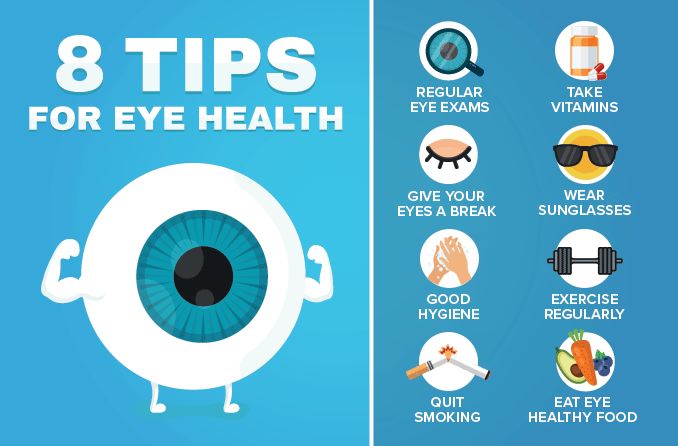Andalusia Optometrist: Dedicated Vision Take Care Of Every Patient
Wiki Article
Is Refractive Surgical Treatment Right for You? Variables to Consider for Better Eyecare
In the world of eye care, the choice to undergo refractive surgical procedure is a crucial one that demands thoughtful factor to consider. From the details of one's eye wellness to the details of personal expectations and daily habits, each facet holds value in the more comprehensive landscape of refractive surgical procedure candidateship.Eye Health And Wellness Assessment
When thinking about refractive surgery, a comprehensive eye wellness examination is important to evaluate the suitability of the treatment for every individual. neurologist andalusia. This examination includes a series of evaluations and examinations carried out by an eye care specialist to identify the overall health of the eyes, the visibility of any type of underlying problems, and the stability of the refractive errorDuring the assessment, numerous elements are thought about, such as the individual's medical background, present eye prescription, corneal density, pupil dimension, and tear film top quality. These evaluations aid to determine any contraindications to refractive surgical procedure, such as corneal irregularities, cataracts, or neglected eye infections. In addition, the assessment aids to handle person expectations pertaining to the prospective end results of the surgery based upon their unique eye attributes.
Inevitably, the eye health assessment is necessary in ensuring the safety and efficiency of refractive surgical treatment, as it gives valuable insights into the individual's eye health and wellness condition and assists establish one of the most appropriate therapy choices for attaining optimum visual results. (cardiologist andalusia)
Lifestyle Evaluation
A comprehensive way of living evaluation is integral in figuring out the suitability of refractive surgical procedure for an individual's aesthetic correction demands. Lifestyle aspects such as occupation, pastimes, and daily activities play a crucial function in the decision-making procedure concerning refractive surgical procedure.Furthermore, lifestyle habits such as sports engagement, exterior tasks, or even skincare routines can affect the recovery process and general success of refractive surgical treatment. By carrying out an extensive lifestyle assessment, eye care specialists can customize their suggestions and treatment plans to fulfill the unique demands of each person, inevitably leading to enhanced visual outcomes and complete satisfaction.
Expectation Alignment
Establishing realistic assumptions includes detailed pre-operative discussions in between the eye doctor and the individual. The specialist needs to transparently communicate the prospective risks, benefits, and limitations of the procedure (andalusia pediatrics). Individuals need to understand that while several individuals attain 20/20 vision or far better adhering to refractive surgical treatment, some might still need glasses for sure tasks like analysis or driving at night. Taking care of these expectations aids avoid dissatisfaction and dissatisfaction post-surgery, bring about a much more favorable overall experience for the person.
Danger Evaluation

Variables that may boost the risk of issues consist of age, certain clinical problems like autoimmune diseases, unsteady vision prescription, slim corneas, and unrealistic individual assumptions. Additionally, selecting a seasoned and competent specialist, adhering to pre and post-operative care directions faithfully, and revealing any kind of relevant case history can aid minimize risks.
To lessen the likelihood of problems, eye doctors conduct complete pre-operative evaluations to identify any type of contraindications to surgery. They also talk about the possible threats and advantages with patients during the assessment process. By participating in open communication and shared decision-making, both the individual and the eye doctor can interact to determine if refractive surgery is the right selection based on specific threat accounts and preferred results.
Appointment Value
Considering the crucial function of educated decision-making in assessing risks and potential difficulties in refractive surgical procedure, the appointment procedure holds considerable significance in directing patients in the direction of optimum results. During the consultation, the eye doctor examines the individual's eye health and wellness, refractive errors, and total suitability for surgery. This first analysis is vital in identifying the most ideal procedure for each person, considering variables such as corneal density, pupil dimension, and existing eye conditions.In addition, the examination functions as a possibility for individuals to discuss their assumptions, issues, and any kind of concerns they might have relating to the surgery. Clear interaction in see this site between the person linked here and the cosmetic surgeon is important to make certain sensible assumptions and a complete understanding of the potential risks and benefits included.
Additionally, the examination permits the cosmetic surgeon to clarify the different surgical alternatives available, their particular end results, and the post-operative care needed. This thorough discussion equips individuals to make well-informed decisions regarding their eye treatment, leading to better contentment and outcomes post-surgery.
Conclusion
In final thought, people considering refractive surgery ought to go through a thorough eye health assessment, examine their way of living habits, align their expectations with prospective results, examine the affiliated threats, and prioritize consultations with eye care experts. These elements play a critical duty in determining the viability of refractive surgery for each person, ensuring optimal outcomes and satisfaction with the procedure.Patients considering refractive surgery often have high expectations regarding the end results, anticipating best vision without the requirement for glasses or get in touch with lenses. While refractive surgery can greatly improve vision and lower reliance on aesthetic aids, it is crucial for people to comprehend that outcomes might vary based on private factors such as the degree of refractive mistake, corneal density, and overall eye wellness.
By involving in open communication and shared decision-making, both the ophthalmologist click site and the patient can function together to determine if refractive surgical treatment is the right selection based on private risk accounts and desired end results.
Thinking about the crucial duty of notified decision-making in assessing dangers and potential issues in refractive surgery, the appointment process holds substantial value in guiding individuals in the direction of ideal end results. During the appointment, the ophthalmologist examines the patient's eye health and wellness, refractive mistakes, and general viability for surgery.
Report this wiki page